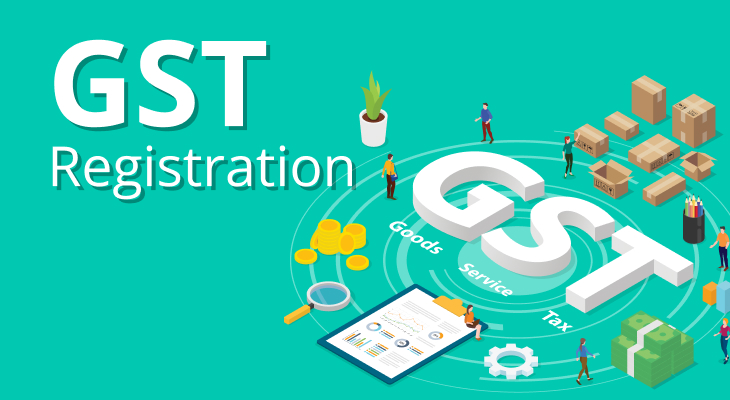Full Checklist for Effective Singapore GST Registration
Full Checklist for Effective Singapore GST Registration
Blog Article
Mastering GST Registration: Crucial Actions to Make Certain Regulatory Conformity and Business Growth
Browsing the world of Goods and Services Tax (GST) registration can be a critical action for organizations aiming to maintain compliance and foster development. The complex procedure of signing up for GST demands an eager understanding of the essential actions included, from grasping the fundamental concepts of GST to thoroughly preparing the called for paperwork. Beyond just ticking off the governing checkboxes, mastering GST enrollment opens up a realm of opportunities for services to purposefully utilize this tax structure to thrust their development. Understanding the subtleties of GST registration is not just an administrative requirement yet a strategic relocation that can form the trajectory of a company in the direction of lasting success.
Understanding GST Essentials
Recognizing the basics of Goods and Provider Tax (GST) is essential for organizations to navigate the intricacies of tax conformity and monetary management effectively. GST is a value-added tax imposed on the supply of goods and solutions in India, intending to create a unified tax system throughout the country. Singapore GST Registration. Under GST, businesses need to register and acquire an unique GSTIN (Product and Provider Tax Obligation Identification Number) to be certified with the law

Readying Necessary Documents
To make sure conformity with GST enrollment demands, businesses should collect and organize the required records for the application process effectively. The vital documents typically needed for GST registration include evidence of company enrollment or incorporation, frying pan card of the organization, identity and address proofs of marketers, photos, bank statements, and proof of address of the workplace. Furthermore, organizations may need to supply information of accredited notaries, service tasks, and turnover. It is important to make sure that all documents are precise, as much as date, and fulfill the demands specified by the tax authorities to avoid hold-ups or rejections in the registration process.
Organizing these papers in a systematic fashion can simplify the application process and demonstrate business's commitment to regulatory compliance. Organizations need to keep both electronic and physical duplicates of these records for easy access and recommendation. By preparing the required files carefully, companies can expedite their GST enrollment procedure and focus on their core procedures with the guarantee of governing compliance.
Online Registration Process
Begin the GST registration process by browsing to the main online site marked for service enrollment. When the account is established up, you can continue with filling up out the GST enrollment application kind by entering the needed business info, including organization turn over, address, and kind information.

Compliance and Coverage Commitments
Upon effective enrollment on the GSTN portal and completion of the essential paperwork, businesses need to adhere to stringent conformity and reporting obligations to ensure regulatory adherence and functional openness. Compliance demands under GST required precise and timely filing of numerous returns, such as GSTR-1 for outside products, GSTR-3B for why not look here regular monthly recap returns, and yearly returns like GSTR-9. In addition, services require to integrate their sales and acquisition data with GSTR-2A and GSTR-2B to claim input tax obligation credit histories properly.
Keeping correct records of billings, accounting records, and other relevant data is critical for GST compliance. Routine audits and evaluations by tax authorities demand companies to have thorough documentation and reporting systems in position. Any type of discrepancies or non-compliance can result in fines, fines, or also suspension of GST registration.
To simplify conformity procedures, services can utilize GST compliance software that automates return declaring, compliance, and reconciliation monitoring. When required can better boost compliance initiatives and guarantee smooth procedures within the GST framework., staying upgraded with governing modifications and looking for expert advice.
Leveraging GST for Service Growth
Organizations can tactically use the GST framework to drive lasting development and boost operational efficiency (Singapore GST Registration). Leveraging GST for service development entails greater than just compliance; it offers a chance for companies to simplify processes and enhance their economic procedures. One crucial benefit of GST is the input tax obligation credit rating system, which enables organizations to claim debts for taxes paid on inputs. By properly handling input tax obligation credit ratings, companies can minimize their total tax obligation and enhance cash money flow. Furthermore, GST advertises transparency and accountability in the tax obligation system, which can help services develop depend on with clients and companions.
Furthermore, GST enrollment can additionally open up brand-new markets for companies. In essence, leveraging GST for organization development entails strategic planning, effective conformity, and a positive strategy to economic administration.
Conclusion
In conclusion, grasping GST registration is important for ensuring regulative compliance and facilitating business growth. By recognizing the basics of GST, preparing necessary files, completing the online registration procedure, and fulfilling compliance and reporting commitments, companies can utilize GST to their advantage. It is crucial for organizations to abide by the laws and use GST as a tool for broadening their operations and staying affordable on the market.
Browsing the realm of Item and Solutions Tax Obligation (GST) enrollment can be a pivotal step for organizations intending to preserve here are the findings compliance and foster development. The essential records commonly needed for GST registration consist of evidence of company registration or consolidation, Frying pan card of the company, address and identification proofs of marketers, photos, financial institution declarations, and proof of address of the location of company.Start the GST enrollment procedure by navigating to the main online website marked for company registration. Once the account is established up, you can continue with loading out the GST enrollment application kind by going into the required service info, consisting of company type, address, and turnover details.
By comprehending the basics of GST, preparing necessary papers, finishing the on the internet enrollment procedure, and satisfying compliance and reporting commitments, organizations can leverage GST to their benefit.
Report this page